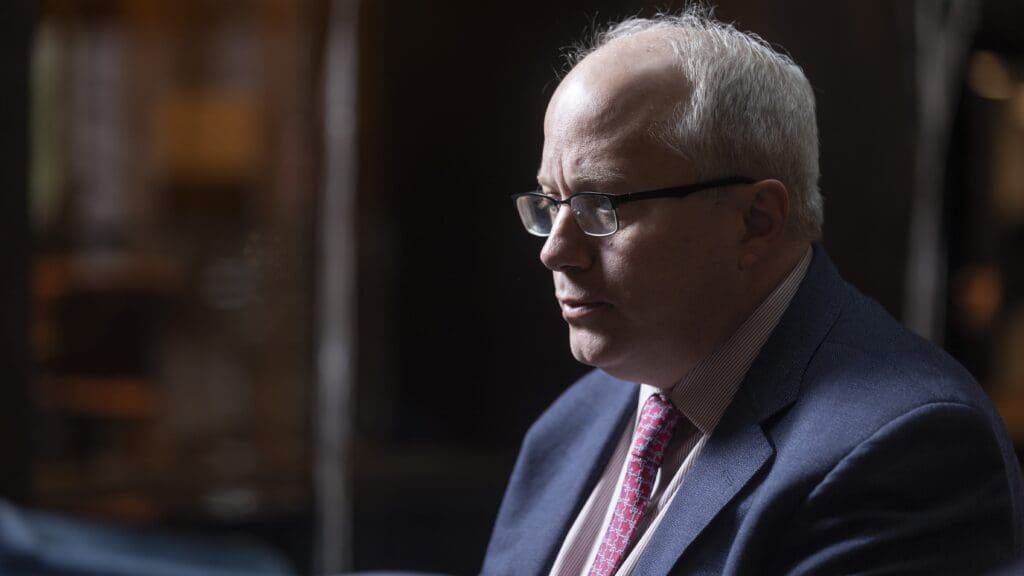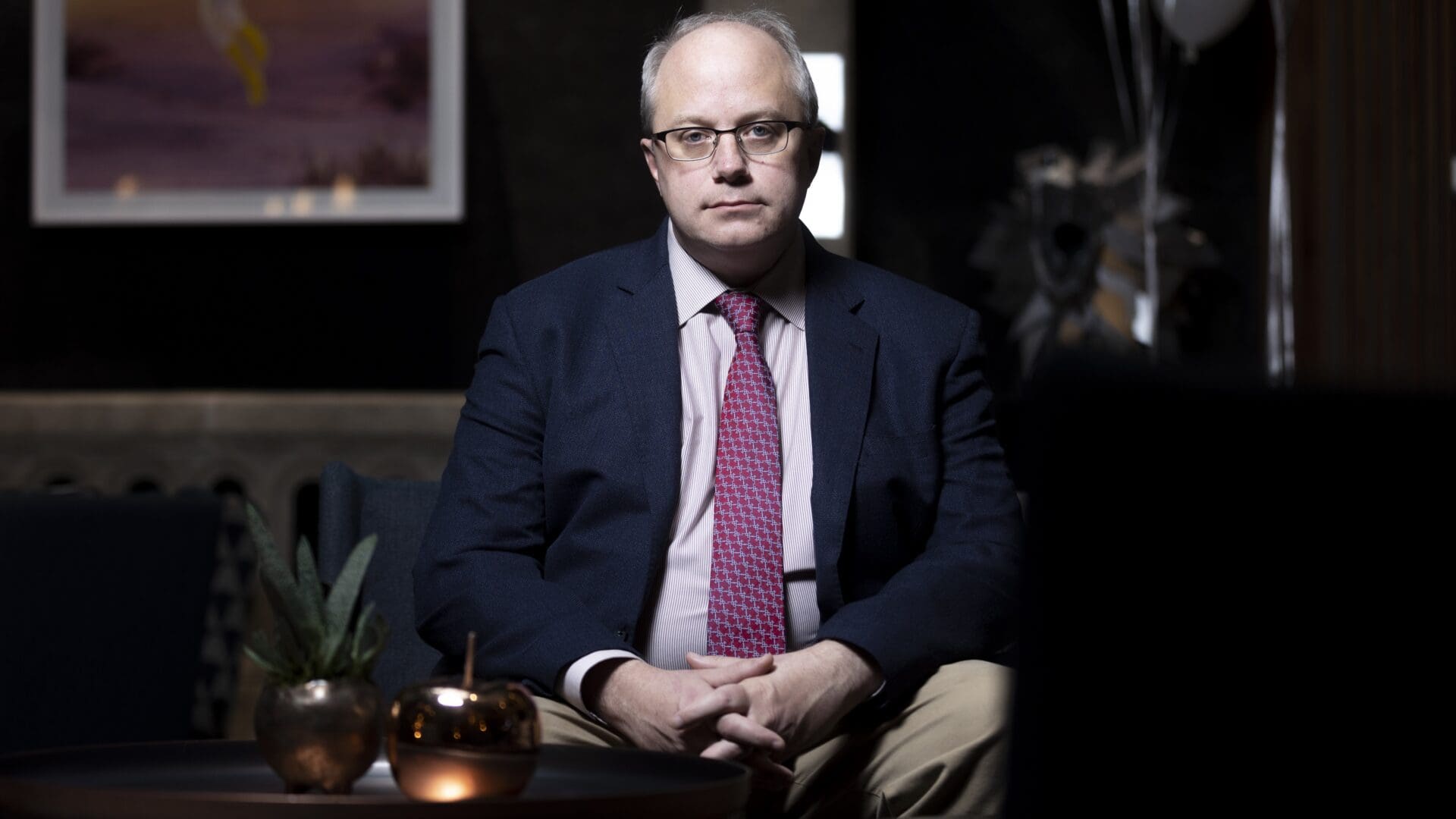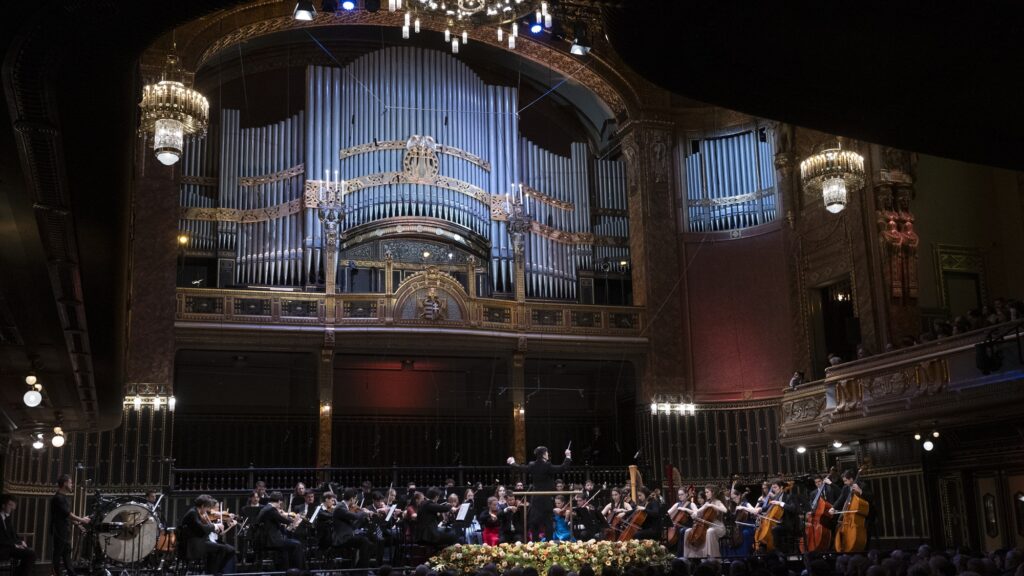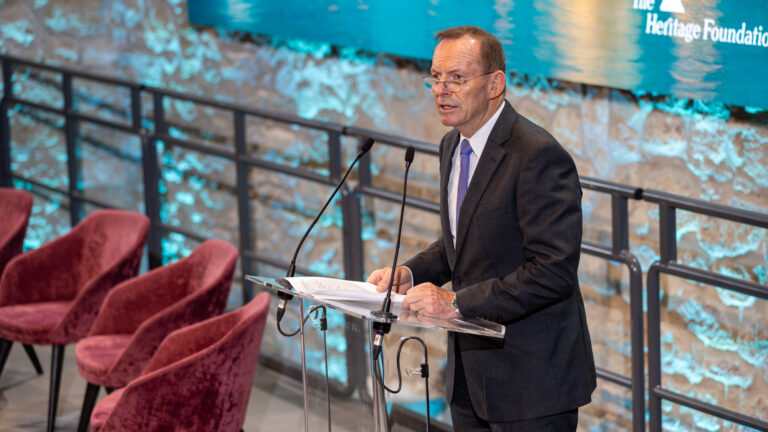The following is a translation of an interview written by Gergely Dobozi, originally published on Mandiner.hu.
Getting rid of Christian references from the Hungarian Basic Law would be a terrible decision, according to Harvard University professor Adrian Vermeule, who thinks that there are viable alternatives to ‘end-stage’ liberalism which he finds disruptive for the Western legal culture.
The debates over the concepts of liberal democracy and the rule of law have become one of the most dividing topics here in Europe. Some argue that especially the latter is too vague to infer sanctions in case of misconduct. There are even disputes over the standards of compliance. What might be the source of this dispute?
I think one feature of liberalism as a political movement is to appropriate and colonise every other concept and fold those into liberalism. And it equates rule of law with liberalism and democracy with liberalism and tries to create an assumption that unless the rule of law and democracy take on a liberal form, then they are not authentic. But that’s false. Both of these concepts long predate liberalism. So it’s perfectly possible to have rule of law and democracy without liberalism. So, I would resist the equation, and I would say that the question of the vagueness of rule of law disappears one we realise that the rule of law need not be liberal. Once we realise that the rule of law can be founded on the objective normativity of the natural law and on the Western legal tradition (for example the Roman Law) informed by Christianity, then the rule of law has content without being liberal.
Does this mean that liberal democracy doesn’t have to be the only outcome of the rule of law?
Correct. I mean especially the liberal part. The rule of law is consistent with any number of different types of regimes, whether a parliamentary or a presidential system, systems that are more or less democratic, more or less representative, and so on. None of that is inherent in the rule of law. The rule of law demands that state be rationally ordered to the common good. But it doesn’t carry other requirements— it’s a kind of a deception of liberalism when it tries to pour itself into the concept of rule of law.
What do you consider as an alternative to the liberal concept?
Well, I mean, just in Europe after the Second World War, we have seen several kinds of Christian democratic constitutional orders that are not liberal in the sense that they are not aimed at the perpetual liberation of the human person from all constraints. They are compatible with the natural law and the natural basis of the family, marriage and traditional morality. But they are genuinely legal and genuinely democratic in the sense that the popular will is the input into the formulation of governmental policy.
You have a theory about common-good conservatism. Would you explain it to the readers?
It’s just an attempt to revive the classical heritage of the Western legal tradition in the sphere of jurisprudence. It argues that there’s no such thing as a morally neutral public policy. Instead, every public policy is founded on the conception of the good society and of the anthropology of the human person. That’s just as true of the liberal conception, even though it tries to claim that it is independent of the vision of the good society—it’s not. So, we have to recognise that, and in my view by reappropriating, reimagining, and recreating, obviously in new circumstances, the traditional principles on which Western law is based, we can regenerate the basis of society and promote human flourishing.
Nowadays in the European Union sanctions are attached to the concept of the liberal perception of the rule of law, at the expense of at least two countries, Hungary and Poland. How would you resolve this situation?
I’m not an expert in EU politics, but whenever I observe this situation, it strikes me as absurd. So if I remember correctly, Ursula von der Leyen just before the Italian elections said that the prospect of the election of Meloni was a threat to democracy, which is a paradox. If the Italian people select Meloni, then this is somehow antidemocratic? Of course, what she means is really that it is antiliberal. And this is the same game that’s being played, as far as I can tell, with Hungary regarding the rule of law.

Let me continue with a quote from you. On judicial interpretation you said that ‘My conclusions are that judges acting under uncertainty should strive, above all, to minimize the costs of mistaken decisions and the costs of decision making, and to maximize the predictability of their decisions.’ Some argue that the European Court of Justice is following a political path towards an ‘ever closer Union’, a federal outcome of the European project. The decisions of the forum can be regarded as milestones, and given that the road is untravelled, the jurisdiction often lacks predictability compared to the requirements of legal certainty. How would you comment on this?
A major theme of the classical law is that the law should be stable over time and protect traditional expectations about how human life is arranged and how society is conducted. Liberalism by contrast is a doctrine of perpetual disruption and instability, constantly trying to find new frontiers by which traditional societies, and traditional morality can be disrupted. It is done through endless new liberations of the human personality—and this is reflected in liberal jurisprudence. The latter is interested in finding new frontiers for new rights in the fields for example of marriage, etc. So, this is the source of the instability that I think is antithetical to the classical Western conception of law.
You also said that liberalism is in many respects resembles an enterprise. Would you elaborate on that?
Yes. We have to distinguish the official philosophy of liberalism propounded by professors in the universities on the one hand, from the actually operating constitutional order of liberalism. And what we’re seeing is that the latter is a dynamic enterprise that in my view is fundamentally theological. It wants to constantly celebrate the ritual of the overcoming of the past, the overcoming of darkness, the overcoming of repression in order to produce this perpetual liberation of the human person. And that enterprise is profoundly disruptive and chaotic. This is what creates this sense of inevitability and dynamism of liberalism. But it’s not inevitable, it can be resisted and one thing I admire about Hungary is that—as far as I know—this country resists.
According to you, the last stage of liberalism is the progressive phase. If this is really a process, and we face the last stage, what in your opinion comes next?
Well, it’s hard to know exactly where we are in the process. However, liberalism’s strength is also its weakness. This profoundly disruptive character that I discussed starts to create forces of resistance and backlash from people who think that there is a substance of anthropology in the person that is natural and that is embodied in traditional Western legal institutions. And those people start to react against liberalism. You see movements like in Poland and Italy, Hungary and elsewhere that try to limit the effects of liberalism in the public sphere. So, this dynamism of liberalism also creates the forces that oppose it.
In the liberal worldview, a close connection between the Church and the government is a taboo. What in your view would be the ideal scheme for society in this regard?
Well, in the American context, the courts have tried to enforce something that they call the separation of Church and State. What they meant by that is, in effect, that all religious views and indeed all moral principles should be driven from the public sphere, and that everything should be conducted according to the principles of consent and harm, saying people should be free to act however they wish unless their actions cause harm to somebody else. This approach is thought to be neutral, however, I think this is illusory. You know I’m Catholic. The traditional doctrine of the Catholic Church itself recognises that the temporal power has a legitimately autonomous sphere on an independent basis. And it’s not something that the Church wants to control or to grab power for itself. But I see nothing wrong with religious arguments and moral arguments being part of the public discourse and foundations of public policy.
The Hungarian Constitution has close references to God, the Church and St Stephen. This condition is often criticised by several representatives of the Hungarian liberal society, saying that these moral references should be left out of the Basic Law of the State, and some neutral stance should be taken on instead. As a legal expert, what do you think about that?
I think it’s wonderful, and it would be a terrible mistake to get rid of it. One thing we’ve experienced in the United States since WW2, is that when you eliminate religious and moral arguments from the public sphere, then you lose the foundation on which public affairs are conducted. Then one is left with people arguing over competing conceptions of harm and there is no way to judge these disputes. So, you get a kind of terrible polarisation we now see in the United States.
Click here to read the original interview







